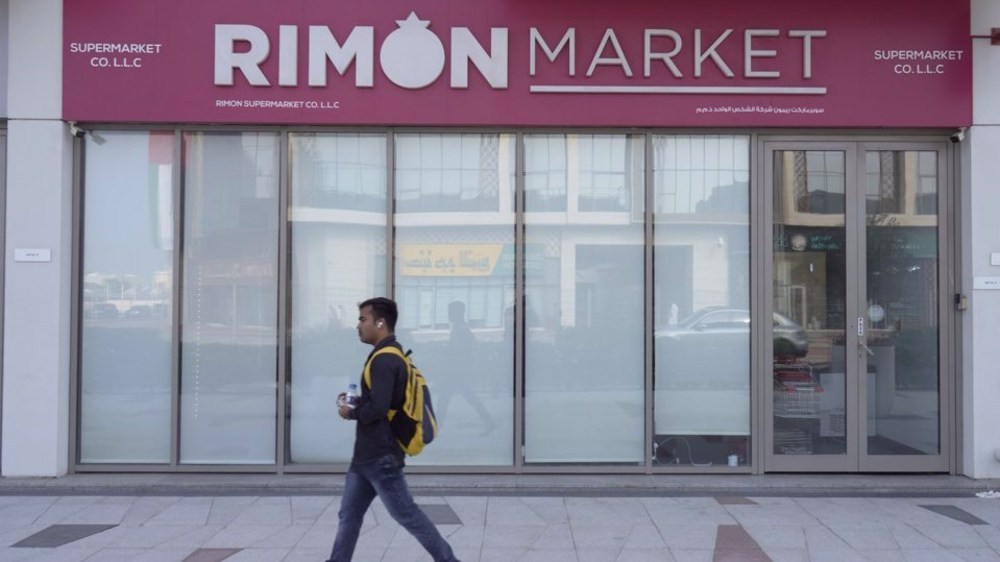US criticism of Bahraini activist’s jail term insincere: Analyst
A Bahraini political analyst and opposition figure has expressed doubts about the sincerity of US condemnation of the recent prison sentence given to prominent human rights activist and pro-democracy campaigner Nabeel Rajab, stating that Washington should have demanded his freedom long time ago.
“I’m not sure how serious Americans are in calling for the release of such people. First of all, they should have called for his release long time ago not just now that the sentence has been passed. They should have called for his release like the other NGOs that have been urging his immediate and unconditional release for the past years he has been detained,” Saeed Shehabi told Press TV in an exclusive interview on Tuesday.
He stressed that the Al Khalifah regime cannot keep the 52-year-old chairman of the Bahrain Center for Human Rights (BCHR) behind bars in case the US administration really wants Rajab’s release.
“The United States is under immense pressure to show it values human rights because it is accused of not paying any attention to such an issue. Human rights are not going to be respected under [Donald] Trump and they will not surface in the US foreign policy unfortunately,” Shehabi noted.
The analyst underlined that US statesmen are well aware of the fact that Al Khalifah regime is among the worst violators of human rights in the world, but they tend to describe it as one of their allies because the two parties support torture, killings, dictatorship and hypocrisy.
On Monday, Bahrain’s Lower Criminal Court found Rajab guilty of “disseminating false news, statements and rumors about the internal situation of the kingdom that would undermine its prestige and status”, and sentenced him to two years in jail.
On December 22, 2016, Bahraini authorities accused Rajab of making comments that “harm the interests” of the Manama regime and other Persian Gulf kingdoms through an article attributed to him and published by French daily Le Monde.
The article slammed the Daesh Takfiri terrorist group for their crimes against humanity. It also slammed Persian Gulf Arab countries for their failure to stop the spread of the violent Wahhabi ideology.
Wahhabism, the radical ideology dominating Saudi Arabia and freely preached by its clerics, fuels the ideological engine of terror organizations such as Daesh and Fateh al-Sham, al-Qaeda's Syrian branch formerly known as al-Nusra Front. Takfiri terrorists use the ideology to declare people of other faiths “infidels,” justifying the killing of their victims.
Rajab was detained on June 13, 2016 for tweets that criticized Manama’s role in the deadly Saudi-led military campaign against Yemen.

The Manama regime has stepped up crackdown on political dissent in the wake of US President Donald Trump's meeting with Bahraini monarch King Hamad bin Isa Al Khalifah during a summit in the Saudi capital city of Riyadh last month.
Less than 48 hours after the US president left Saudi Arabia, Bahraini regime troops attacked supporters of prominent Shia cleric Sheikh Isa Qassim in the northwestern village of Diraz, killing at least five people and arresting 286 others. Reports said 19 policemen were also injured in the clashes.
The London-based Bahrain Institute for Rights and Democracy said Trump “effectively gave Hamad a blank check to continue the repression of his people.”
Thousands of anti-regime protesters have held demonstrations in Bahrain on an almost daily basis ever since a popular uprising began in the country in mid-February 2011.
They are demanding that the Al Khalifah dynasty relinquish power and allow a just system representing all Bahrainis to be established.
Manama has gone to great lengths to clamp down on any sign of dissent. On March 14, 2011, troops from Saudi Arabia and the United Arab Emirates were deployed to assist Bahrain in its crackdown.
Scores of people have lost their lives and hundreds of others sustained injuries or got arrested as a result of the Al Khalifah regime’s crackdown.
On March 5, Bahrain’s parliament approved the trial of civilians at military tribunals in a measure blasted by human rights campaigners as being tantamount to imposition of an undeclared martial law countrywide.
King Hamad ratified the constitutional amendment on April 3.
Relentless Israeli ceasefire violations justify need for self-defense: Lebanese MP
Tel Aviv tells Damascus Israeli forces will remain in occupied territory: Report
Dec. 22: ‘Axis of Resistance’ operations against Israeli occupation
‘Abhorrent’: Oxfam says only 12 trucks delivered aid in North Gaza since Oct.
VIDEO | Leader receives religious eulogists on Hazrat Fatima birth anniv.
Pope Francis slams Israel’s ‘machine-gunning’ of Gaza children
US hostage-taking of Iranian nationals violation of intl. law: Deputy FM
VIDEO | Carol Singers for Palestine on London’s Parliament Square


















 This makes it easy to access the Press TV website
This makes it easy to access the Press TV website